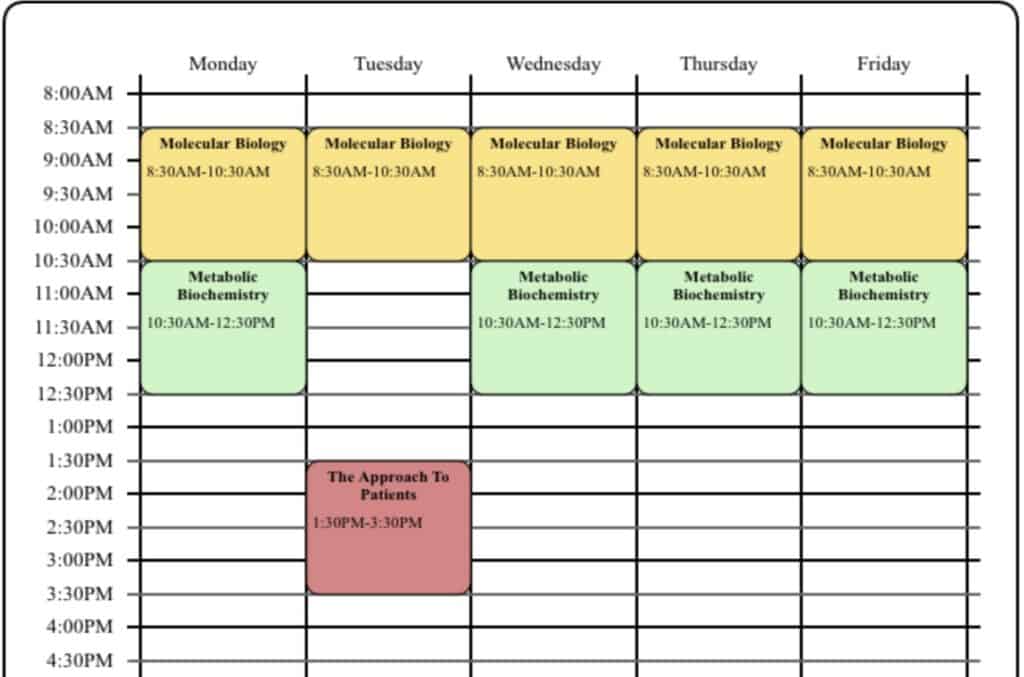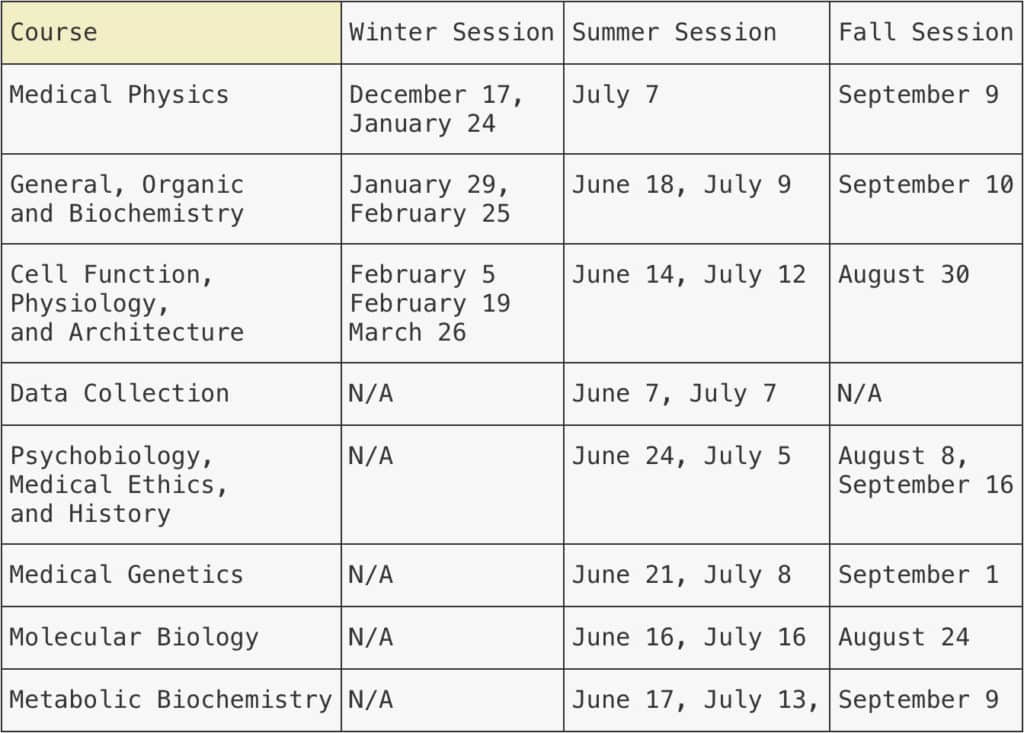University of Padova was one of my first choices when considering studying medicine in English in Italy. When I was applying to universities in Italy to study medicine, I felt as if i was approaching it blindly, as I was unable to find resourceful information to properly answer the questions I had. I stayed up night after night looking for any sort of information that could give me the satisfaction of an educated approach to the matter, gathering personal stories, and creating a consensus of both fact and statistics. The knowledge gained was difficult but truly powerful, something we felt obligated to pass on to those whose shoes we were once in.
Structure of Academic Year in Padova
October-December: First semester lessons
Late December marks the beginning of the Christmas break, up until early January where classes restart for a brief period of time.
- Rest of January: Study break; First exam session
February: One month study break; First exam session continued
March-May: Second Semester classes begin, interrupted by Easter break in April.
June-July: Study break; Second exam session
August: Third exam session
September: Third exam session

1st Year Subjects
First Semester
- The Building Blocks
- Medical Physics
- General, Organic, and Introduction to Biochemistry
- Cell Function, Physiology, and Architecture
- Cell Biology
- Histology
- Embryology
- Physiology
Second Semester
- Approach to Patients
- History of Medicine
- Data Collection and Patient Interview
- Psychobiology
- Medical Ethics
- Biological Molecules 1
- Molecular Biology
- Medical Genetics
- Biological Molecules 2
- Metabolic Biochemistry
- Internship
- Biomedical Safety
- Radiology & Plastic Surgery Shadowing
- Introduction to Suturing Techniques
- Ulcer Intervention and Techniques
Q: Are the professors fluent in English? Can I easily understand them ?
It takes a degree of both unparalleled drive and intellect to properly teach a course which has been historically been taught in one language, and actively reinterpret into another. The professors that teach the English program are the same ones that teach the Italian program. As such, the disparity between courses is minimal. Most professors have underwent fellowships in anglophone countries, So their english spans from quite fluent to a professional working proficiency. The lectures are understandable, with few interruptions due to language barrier. Personally, I have yet to feel impacted by a professors ability to communicate, and am more often than not pleasantly surprised. So far, a couple of American professors have instructed in the Approach to Patients course!
Q: What about exams? What are they like?
Exams at the University of Padova take on a more Western approach. Like other Italian universities, Padova provides multiple attempts to write an exam throughout the academic year, allowing students to reattempt examinations to better their score. Subjects are mainly tested in the form of multiple choice questions, sometimes alongside a couple of written answers. Often, professors will create a threshold score to pass in a multiple choice section in order to gain access to the written portion, which may or may not be solely indicative of the final grade achieved. It is an intriguing blend of classical Italian and modern Western influence.

Q: What are the tuition fees and living expenses in Padova?
Living expenses in Padova are quite affordable in comparison to other cities in northern Italy, as it is mainly a university city hosting students. The tuition fees are a maximum of 2435 euro per year ( first-year students have an additional 188 euro installment, bringing the total to 2623 euro). Rent is able to accomodate most lifestyles and budgets, which can be as low as 300 euro each for a single room in a shared space within university proximity, and as much as 850 euro for a luxurious single-bedroom private apartment! Certain utilities are often included in the price of rent, leaving month-to-month guesswork behind for additional fees.
Q: I heard some universities offer free Italian language courses? Is it the same for Padova?
Yes! A1 Italian courses are provided free-of-charge on behalf of the university, with subsequent language levels costing a relatively small fee. The courses typically occur twice a week, complimentary to the students schedule.
Q: Do we study in the morning or afternoon? How are the classes organised ?
Classes typically begin at 8:30am, often concluding by 12:30 (with few anecdotal exceptions of classes reaching into the mid-late afternoon). This changes as students integrate into clinical rotations through the 3rd year, where the morning is spent in the hospital, while clinical studies take place in the afternoon.
Q: What about accommodation?
The University of Padova offers accommodations along side the ESU, which houses up to 1400 students spread throughout ten halls. The price the students pay is calculated based on merit, family income, and on-site facilities provided. There are also a number of private colleges able to take international students affiliated with the university.
Q: What are the clinical years like at Padova?
Students begin to gain in-hospital exposure beginning in the first year, learning practical skills such as suturing while also shadowing low-traffic wards to gain familiarity with the environment. By third year, students begin true clinical rotations, working in the hospital while also studying clinical science courses
Q: Do we get paid for practical lessons ?
Students are not paid for the experience they gain as part of their mandatory education.
